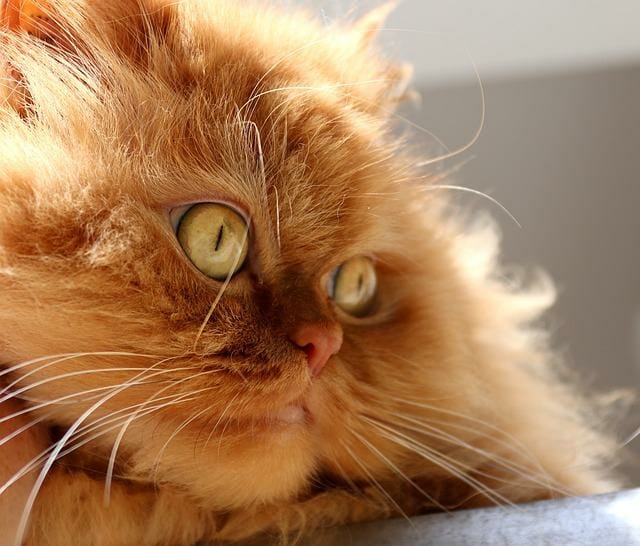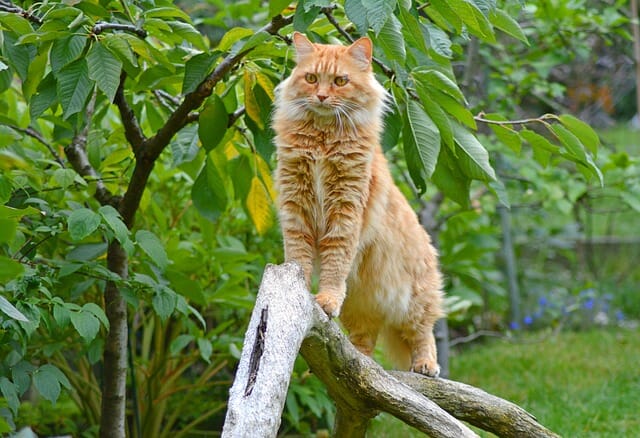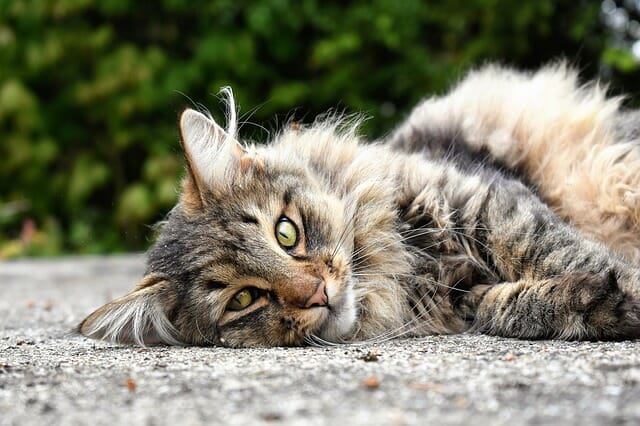Why Do Cats Lose Hair: Causes, Preventive Measures and Treatment for Cat Hair Loss
Some cats lose their hair due to a problem with the oil glands; others may have genetic issues that lead to thinning or hair loss and overgrooming. Some common causes of baldness in cats include feline cancer and metabolic disorders such as diabetes. When cats lose their hair, it can be challenging to determine the cause. You can do a few things to discover what is causing your cat’s baldness.
Table of Contents
Causes of Cat Hair Loss


It can be frustrating when your cat starts losing hair excessively, or the fur isn’t growing back. If unsure of what’s causing the problem, speak with your veterinarian. However, there are a few primary causes of cat hair loss that you can try to prevent or solve. Some solutions include dietary changes (such as adding more fiber to the cat’s diet), topical treatments applied directly to the scalp, or surgery if other measures don’t work.
Genetics
Genetics can affect cats’ hair loss in a few ways. One is that genes may influence the amount of hair that falls out. For example, some breeds of cats are more likely to lose hair than others, possibly due to genetic factors. Additionally, some drugs and substances (such as certain types of radiation) can damage hair follicles and lead to cat hair loss. In addition, health conditions like immunosuppression or thyroid problems can also cause cat hair loss.
Grooming
Grooming is caring for a cat’s coat by ensuring its hair is appropriately trimmed and cleaned. If the hair on a cat’s head is not properly groomed, it can become tangled, matted, and felted together. This will cause the hair to fall out in clumps, leading to bald patches on a cat’s head.
Hormonal Changes
Hormonal changes can cause a cat to lose hair. During the reproductive process, female cats produce estrogen and progesterone. These hormones help control hair growth on the head, chest, and abdomen. Excessive hair loss may occur when these hormones are no longer produced by a cat’s body or are not appropriately used.
Disease
There is no one answer to this question, as it can vary depending on the type of disease-causing hair loss in cats. Some common causes of hair loss in cats include Feline Infectious Peritonitis (FIP), Shampoo-Sensitive Dermatitis, and Alopecia Areata.
Alopecia can cause cats to engage in overgrooming behaviors. When cats experience alopecia, such as patchy hair loss, they may become obsessed with grooming the affected areas excessively. This compulsive behavior, known as cat overgrooming, can lead to further skin irritation and exacerbate the underlying cause of the alopecia. It’s important to address the root cause of alopecia and provide appropriate veterinary care to alleviate discomfort and discourage overgrooming.
Each of these diseases presents with its own unique set of symptoms that may lead to cat hair loss. In most cases, however, a diagnosis will be based on the clinical history and examination findings coupled with tests such as fecal analysis or blood work.
Medications and Diet
There are a few causes of hair loss in cats, some of which are due to medications and diet. While there is no one-size-fits-all approach to treating cat hair loss, following a few tips can help make the situation less troublesome for the pet and the owner.
For example, watching cat food labels is essential as certain foods can cause our feline friends’ hair follicles to overproduce oil. This excess sebum then hardens and clogs up the little hairs around the kitten’s head – leading to baldness in later life.
If you’re aware of this issue and your kitty regularly eats foods that cause excessive shedding, you’ll be well on your way to preventing or resolving cat hair loss!
Environmental Factors
There are various ways businesses can improve the environmental conditions of their operations to reduce cat hair loss. For example, solutions may include special cat shampoos and supplements and changes in humidity, climate, and diet.


Environmental factors that can lead to cat hair loss include changes in air quality (due to allergies or pollutants), dietary problems (such as feline food allergies), inappropriate cleaning products used on carpets or upholstery, flea infestations, etc. Taking measures before any of these problems will help improve your cat’s condition overall.
Preventive Ways for Hair Loss in Cats
Understand the Causes
The most common causes of hair loss in cats are stress, illness, and aging. While there isn’t always an apparent cause for hair loss, ensuring your cat is healthy and eating a balanced diet should help minimize the risk of problems.
If you notice any changes, such as shedding more than usual or patchy baldness on your cat’s skin or fur, you must get them checked out by a veterinarian as soon as possible.
Treat Hair Loss if It Occurs
If you’re noticing that your cat is losing hair, it’s essential to take action and investigate the cause. Hair loss can be caused by several things – from environmental factors such as allergies or fleas to dietary issues like poor nutrition or over-consumption of thyroid hormones.
If you think your cat may have hair loss, several treatments can help improve its coat health. For example, most cats will start losing their hair around six months – but even younger cats can experience occasional baldness. By following a few simple tips and treating common problems early on, you’ll do everything possible to help prevent further hair loss in your feline friend.
Treatment for Cat Hair Loss
Hair loss in cats can be frustrating and worrisome. However, various treatments are available to restore hair production and improve hair growth. However, if you can identify the underlying cause of hair loss, you can treat it successfully.
Oral Supplements
Oral supplements are often used to treat hair loss in cats. These supplements provide ingredients that help to support the growth of new hair follicles and promote a healthy scalp environment.
Some popular oral supplement options include fish oil, omega-3s, and biotin. Fish oil comprises essential fatty acids for human and cat health.
Omega-3s can reduce inflammation in the skin and support the growth of new hair follicles. Biotin is also an effective ingredient for treating various cat conditions, including hair loss. Combined use of these supplements can help achieve better results than any one supplement.
Topical Medications


Topical medications are often used to treat hair loss in cats. Minoxidil is a medication that inhibits the production of DHT, which is responsible for hair growth in humans and other animals.
Laser therapy uses high-energy beams of light to destroy unwanted hair follicles. This treatment is typically less invasive than surgery and can be performed using either a hand-held device or an outpatient clinic setting. Both minoxidil and laser therapy are effective in treating hair loss in cats. However, each has its benefits and drawbacks.
Minoxidil is less invasive than surgery but may require repeated treatment over time. Laser therapy can be more invasive but results in less damage to the hair follicle than minoxidil treatment. Combined use of these medications can provide a better overall outcome than using either drug alone.
Surgery
Surgery is often the best option for Treating cat hair loss when other treatments fail or are unsuitable for the individual cat’s needs. For example, surgery may involve removing many hair follicles and can be difficult for some cats.
